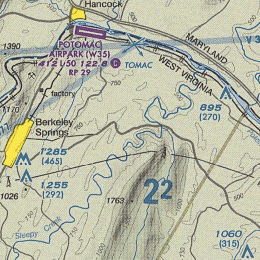Piloting
Piloting refers to the skill and process of navigating and operating an aircraft or ship. It encompasses a wide range of activities, from the manual control of a vehicle to the comprehensive understanding of navigation, weather, and regulations. Piloting requires a combination of theoretical knowledge, practical experience, and continuous training to ensure safety and efficiency in travel.
Overview[edit | edit source]
Piloting involves more than just the physical act of steering a vehicle. It includes the planning and execution of journeys, understanding and applying navigation techniques, communicating effectively with air traffic control (for aviators) or maritime authorities (for mariners), and responding appropriately to emergencies and changing conditions. Pilots must be proficient in the use of navigational instruments and systems, such as GPS, radar, and other avionic or maritime navigation tools.
Aircraft Piloting[edit | edit source]
Piloting an aircraft, also known as aviation, requires a detailed understanding of aerodynamics, aircraft systems, and the airspace structure. Pilots must be licensed by regulatory bodies, such as the Federal Aviation Administration (FAA) in the United States or the European Union Aviation Safety Agency (EASA) in Europe. Training includes ground school to learn theoretical aspects of flight, and flight training to gain practical experience under the guidance of a certified instructor.
Ship Piloting[edit | edit source]
Ship piloting, or navigation, involves controlling a ship's movement and direction while at sea. It requires knowledge of maritime laws, weather patterns, ship handling, and emergency procedures. Unlike aircraft pilots, ship pilots often specialize in navigating particular types of vessels, such as tankers, cargo ships, or passenger ships. In many cases, local pilots with specific knowledge of a harbor or waterway are employed to guide ships safely into and out of ports.
Training and Certification[edit | edit source]
Training to become a pilot varies depending on the type of vehicle and the country's regulations. For aircraft pilots, it typically involves obtaining a series of licenses, starting with a Private Pilot License (PPL) and potentially advancing to a Commercial Pilot License (CPL) or Airline Transport Pilot License (ATPL). Each level of certification requires passing both theoretical exams and practical flight tests.
Ship pilots usually undergo a combination of maritime academy education and on-the-job training. They must also pass certification exams and, in many cases, accumulate a significant amount of sea time before being eligible to pilot certain types of vessels or perform pilotage in specific areas.
Safety and Regulations[edit | edit source]
Safety is a paramount concern in piloting. Pilots must adhere to strict regulations and standards set by authorities such as the FAA, EASA, or the International Maritime Organization (IMO). These regulations cover everything from maintenance and operation of the vehicle to the health and fitness of the pilot. Pilots are also responsible for staying updated on the latest safety practices, technological advancements, and regulatory changes.
Challenges[edit | edit source]
Pilots face various challenges, including adverse weather conditions, technical malfunctions, and high-stress emergency situations. The ability to remain calm under pressure, make quick decisions, and effectively manage risks is crucial. Additionally, pilots must be able to communicate clearly and coordinate with a wide range of support personnel to ensure the safety and well-being of their passengers and crew.
Conclusion[edit | edit source]
Piloting is a complex and rewarding field that plays a critical role in global transportation and commerce. Whether flying an airplane or steering a ship, pilots must possess a deep understanding of their vehicle, the environment in which they operate, and the regulations that govern their activities. Continuous learning and adaptation are key to success and safety in this dynamic profession.
| This article is a stub. You can help WikiMD by registering to expand it. |
Search WikiMD
Ad.Tired of being Overweight? Try W8MD's physician weight loss program.
Semaglutide (Ozempic / Wegovy and Tirzepatide (Mounjaro / Zepbound) available.
Advertise on WikiMD
|
WikiMD's Wellness Encyclopedia |
| Let Food Be Thy Medicine Medicine Thy Food - Hippocrates |
Translate this page: - East Asian
中文,
日本,
한국어,
South Asian
हिन्दी,
தமிழ்,
తెలుగు,
Urdu,
ಕನ್ನಡ,
Southeast Asian
Indonesian,
Vietnamese,
Thai,
မြန်မာဘာသာ,
বাংলা
European
español,
Deutsch,
français,
Greek,
português do Brasil,
polski,
română,
русский,
Nederlands,
norsk,
svenska,
suomi,
Italian
Middle Eastern & African
عربى,
Turkish,
Persian,
Hebrew,
Afrikaans,
isiZulu,
Kiswahili,
Other
Bulgarian,
Hungarian,
Czech,
Swedish,
മലയാളം,
मराठी,
ਪੰਜਾਬੀ,
ગુજરાતી,
Portuguese,
Ukrainian
Medical Disclaimer: WikiMD is not a substitute for professional medical advice. The information on WikiMD is provided as an information resource only, may be incorrect, outdated or misleading, and is not to be used or relied on for any diagnostic or treatment purposes. Please consult your health care provider before making any healthcare decisions or for guidance about a specific medical condition. WikiMD expressly disclaims responsibility, and shall have no liability, for any damages, loss, injury, or liability whatsoever suffered as a result of your reliance on the information contained in this site. By visiting this site you agree to the foregoing terms and conditions, which may from time to time be changed or supplemented by WikiMD. If you do not agree to the foregoing terms and conditions, you should not enter or use this site. See full disclaimer.
Credits:Most images are courtesy of Wikimedia commons, and templates Wikipedia, licensed under CC BY SA or similar.
Contributors: Prab R. Tumpati, MD





